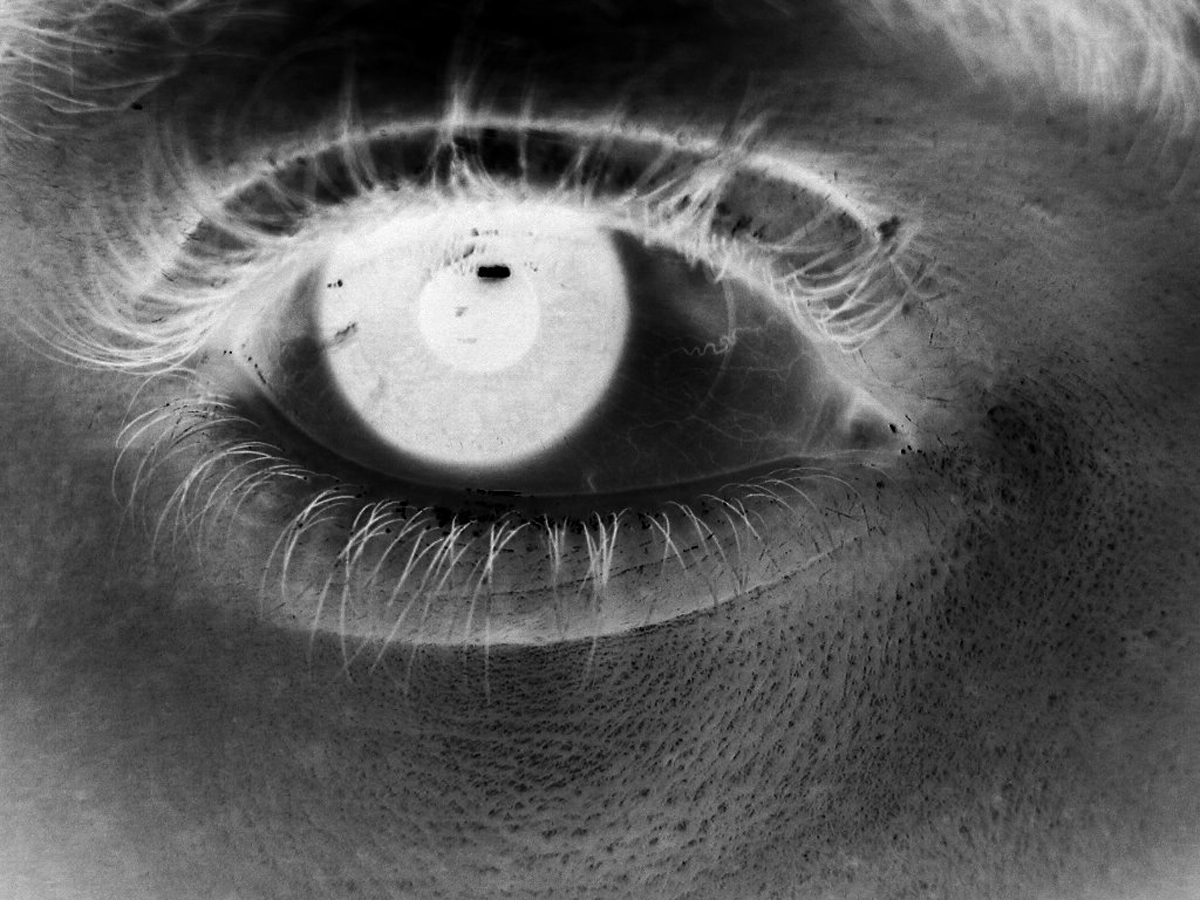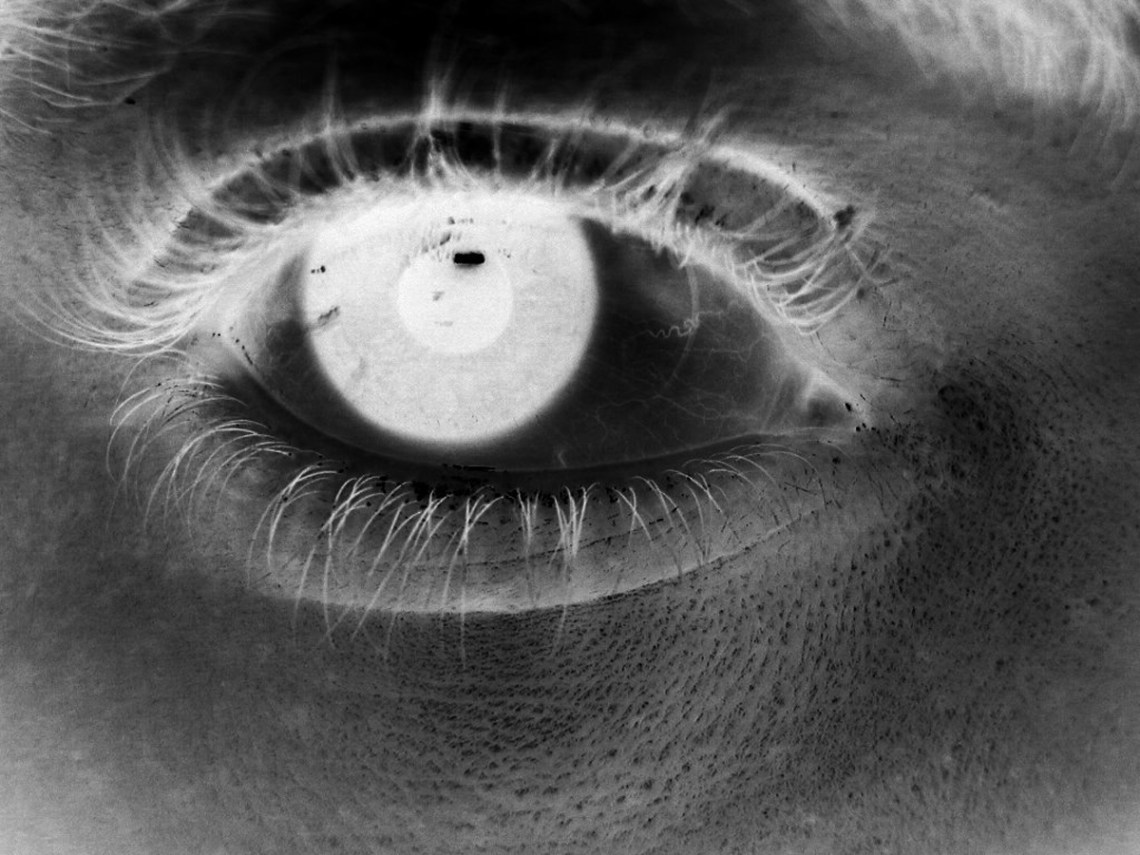
8 Psychologists Describe What It’s Like To Treat A Sociopath

1. He was the creepiest person I ever met.
“I’m an addictions counselor and I treated a guy in his 50’s who was a professional musician and sold heroin to kids in their early 20’s. He sold heroin to people who died of overdoses and had zero remorse. He was the creepiest person I ever met. So long as I was neutral with him he was OK but when I confronted him with a positive toxicology he became very angry because I did not accept his denial. He threatened me by saying I better not run into him in the street. I told him that was it, get out, I’m not working with him. He left and I never saw him again. I believe sociopathy is an absolute need for control.”
2. I’ve worked with two people that I would say were sociopaths, one a serial granny rapist and the second a murderer who had killed three people.
“I’m a psychologist who used to work in maximum security men’s prisons. I’ve worked with two people that I would say were sociopaths, one a serial granny rapist and the second a murderer who had killed three people. The thing that I found most interesting was that they both had similar fantasies. One’s fantasy was that he lived in a spaceship orbiting the earth and that all humans on Earth had died. The other’s was that all the humans on Earth had died leaving only him and the animals. I found this so interesting I thought to check their prison record to see if they had ever had contact. They had never been in the same prison or on the same wing. One had spent his whole sentence in maximum security/maximum protection which meant that they did not mix with other prisoners. Probably useful to note that this was in Australia where solitary confinement is not used as extensively as in, for example, the US. Why I believe they merited a diagnosis of sociopathy, neither showed any sign of remorse or empathy for their victims. They both justified their actions by variously ‘they deserved it’ or it wasn’t my fault I was treated badly by others, nothing to do with me they shouldn’t have been where they were, etc. On the same subject one of the nicest guys I worked with was in for his second murder sentence. His first murder was his girlfriend who he then wrapped in plastic and slept with for some time before being discovered. The second was a taxi driver he stabbed with a carving knife. He was a paranoid schizophrenic. While on his meds the nicest, gentlest guy you could meet. Off his meds a whole other story.
And yes sociopathy is essentially untreatable. These guys were referred primarily as they were a management issues for prison authorities—essentially so they had some assistance but there was never an expectation that the work we did together could ‘cure’ them.
3. Something about him just felt off to me. No one agreed with me.”
“A child molester.
He had the whole ward eating out of his palm and thinking that he was being unfairly harassed by the police. He befriended several young (18, 19) males on the unit and took them under his wing. We didn’t know what he was being accused of, just that the police absolutely insisted he be released directly into their custody. This isn’t entirely unusual, it’s happened before, but this was a big, big deal.
It was on the news that night. He was being charged with a laundry list of charges, mostly males 13-16, but the first victim to come forward was 11. I don’t recall the final count of kids he was accused of raping.
I guessed it after a week of treating him. Something about him just felt off to me. No one agreed with me.”
4. I only almost shit my pants once.
“TL;DR: My very first therapy client as a graduate student was psychopathic, and I only almost shit my pants once….
I’m currently a clinical psychology doctorate student. In my program (which I assume is structured very similarly to other accredited doctorate programs in the states), the second semester of our first year we are given one client that comes in for an ADA assessment, typically geared toward assessing for learning disorders or ADHD. After the first year of grad school, we’re given the go-ahead to begin seeing therapy clients, as opposed to simply seeing clients for assessment. And thus, this is where the story begins.
Each semester (summer included), students are assigned to different practicum teams that are supervised by licensed psychologists. Each team specializes in certain types of cases, and the team I was on treated a wide breadth of presenting concerns for adults. There was one client that we talked about that was of particular interest to myself, even though it sounded slightly challenging, and I decided to grab the call sheet and claim this individual as my very first therapy client, which would include a full diagnostic assessment as this person’s primary goal in coming to the clinic was for diagnostic clarification.
So, as I sat in the clinic’s lab waiting for this person to arrive, I finally get the call from the front desk telling me that my VERY FIRST therapy client had arrived on time and was filling out paperwork/questionnaires related to levels of depression, anxiety, and general psychological distress, as was standard for this particular practicum team/supervisor. Once I got back to the waiting room to call this person up and as we walk to the therapy room, I’m simultaneously excited, apprehensive, nervous, and somewhat intimidated by this monster of a person. I’m not a small person by any stretch, but JESUS CHRIST this was a large human being.
Keep in mind, I’ve been told by someone that had already seen this person that panic attacks were a symptom, and the thought of having to ground this person and prevent them from passing out was somewhat terrifying. As luck would have it, as we walk down the hall, my client stated (with very shifty and unnerving eyes), ‘I’m about to have an anxiety attack.’ All I could think was ‘GODDAMMIT, seriously? My first fucking client is about to have a panic attack DURING MY FIRST GODDAMN SESSION!’ As we sat down in the room with a mound of paperwork to go over before beginning, luck was sent my way as this person’s exponentially elevating somatic symptoms were alleviated, very clearly, through the placebo effect of the pharmaceuticals thrown haphazardly into this person’s mouth (there was an immediate observed quiescence, when my knowledge of the pills taken says they take ~30-45 minutes before the drug does its “magic”). Thank God for the power of the mind.
As we began the intake interview, there was something unnerving about sitting in a room, one-on-one, with this individual. There was clearly an element of distrust, which I can understand—who wants to immediately trust a stranger with all of the intimate details of their likely complex past? It was beyond this though; this person was clearly what I can only describe as ‘removed.’ Before seeing this person, our team of graduate students and our supervisor decided to put together a list of potential diagnoses, based off of the reports gathered from his previous counselor as well as this person’s description of their presenting concerns.
We came up with the following: Autism Spectrum Disorder (ASD; there was noted hypersensitivity to external stimuli and somewhat dysfunctional interpersonal skills), Panic Disorder, and Major Depressive Disorder. In seeing this person, I could get in line with looking further into Panic Disorder and MDD, but ASD just didn’t seem plausible. Yes, there was difficulty with eye contact, but it was due to apparent hyper vigilance and a constant shifting of their eyes from the door to the window and occasionally back to me, which made me think there was something trauma-related. Yes, this person’s social skills weren’t fully developed in this context, but it seemed to be due to learning and past experiences, there was coldness, anger, insensitivity, and a ‘fuck you’ attitude I received when prodding for specific details (this wasn’t constant, over the sessions we built what might be called rapport).
My brain began thinking PTSD as well as the potentiality for a personality disorder. Sitting in this room was uncomfortable. I’m a very approachable and understanding person, and I’ve never had an issue in building a relationship with a stranger, and I’ve seen enough clients now that I know my ability to build rapport with a client has not simply become astoundingly better from experience, but because of how I am as a person.
All the while, I knew there would never be a real connection with this client, no matter what I did. Given the apparent complexity of the case and the necessity to be thorough in providing a diagnosis, my supervisor and I agreed that the diagnostic/evaluation phase of seeing this client would likely take several two-hour sessions, so long as this person agreed to the extended sessions. Our diagnostic impressions shifted to the following based on my own observations as well as a series of self-reports: Posttraumatic-Stress Disorder, Schizotypal Personality Disorder, Borderline Personality Disorder, Panic Disorder, and MDD.
I ended up spending about 12 hours with this client for evaluation, with a couple of sessions extending past 2 hours. Each session was exhausting, like pulling teeth. One of the weirdest aspects of our therapeutic relationship was that at the beginning of each session, it was as if we had never even met each other. The first 30 minutes of every session was spent trying to rebuild the trust acquired in the previous session. I had to curse in session, appease, pander to, and be exceptionally patient for the client to begin to open up about their experiences. Fortunately, in those 12 hours together, I was able to acquire a significant amount of information, so buckle up. I’m going to try to remain vague with some of these details so as to prevent this person from determining, in the event they saw this, that I am who they were seeing.
Here’s a brief rundown of this individual’s experiences, as I feel this has already become too lengthy: molested at an early, but fully salient age, caught engaging in sexual touching with a younger individual when the client was still a minor, completely broken home with an alcoholic for a father and a trauma-ridden mother, frequent moves state-to-state and city-to-city (e.g., California, Washington, Maine, Colorado, you name it), repeated and violent fighting between a sibling, severe conduct disorder in the aforementioned sibling, convicted sex offender as a result of the aforementioned touching, time in juvenile detention, frequent theft and manipulation of family members as a teenager, wildly successful in the client’s chosen field at quite an early age and would spend all of the earnings very quickly, extremely impulsive behavior, began selling and moving drugs as a young adult In Colorado, made a significant name for himself in the drug world, recruited by big names in the illicit drug industry across state lines, alluded to a no-nonsense way of conducting business, alluded to multiple deaths occurring in his presence but never claimed direct responsibility, physical violence very frequently with others that often resulted in the opponent’s hospitalization (like I said, this was a big, intimidating person), run-ins with undercover police officers, frequent superficial romantic relationships that seemed to function only as a gratification of a desire for sex, severely lacked any element of conscientiousness, once earned an objectively sizable salary, only a recent comeuppance of panic attacks, moves from place to place extremely often, tumultuous relationships with everyone around the client with the exception of those that were childhood friends, difficulty with succeeding in an academic setting, constantly experienced loss throughout their life, often wondered why everything was falling apart, you get the picture.
Once the evaluation was all said and done, and I had spoken with a family member to corroborate stories for accuracy, additional details, and to rule out something like Paranoid Personality Disorder, my supervisor and I agreed upon a diagnosis of Antisocial Personality Disorder. Keep in mind, any mental health diagnosis (with the exception of, say, Schizophrenia) provided is not an indicator of something someone ‘has,’ per se. The DSM if full of reified constructs, arbitrarily categorized descriptions of behavior that have been defined by man and not medicine. An ASPD diagnosis does not indicate that an individual ‘has’ psychopathy, but that their pattern of behaviors over an extended period of time and beginning in adolescence or sooner is described as ASPD. There is no biological marker for psychopathy, nor is there a chemical imbalance, or a diagnostically distinct difference in brain activity for those diagnosed with ASPD, or any other disorder for that matter.
Alas, once the evaluation was complete, so began the writing of the report. Report writing in a clinical setting isn’t always incredibly enjoyable (especially when writing up WAIS or WJ scores, that is, IQ and achievement testing), but with the lengthy interviews and the assessments we gave my client, writing this report was exceptionally enjoyable, coming from a naïve and green grad student. While writing this report, which took several days considering my client-load at the time, I would try to contact the client in question to schedule a feedback session. This client was notorious for neglecting to answer the phone, and often only showed up to session because each new session was scheduled immediately following the end of each session.
As such, I called my violent, unpredictable, and unnerving client upwards of 6 times to schedule this godforsaken session where I have to tell someone they’re being diagnosed with psychopathy. Each time I left a message but to no avail.
And so, at the very moment I’m organizing the report and putting on the finishing touches, I get a call while in the clinic’s lab that a client of mine had shown up and wanted to speak with me. This day was, for all intents and purposes, my ‘day off.’ I had no clients scheduled and had devoted the day to report writing, and was donning the traditional ‘I don’t give a fuck what I look like’ garb, i.e., gym shorts, T-shirt, backwards hat, and socks that were just too long unless you’re a 14-year-old wannabe ‘baller.’ In short, I was told that the client in question was ‘irate.’ How fun.
As luck would have it, as soon as I made my appearance at the front desk I was greeted with significant hostility. Accusations were thrown, demands were made, and violence was in the air. In knowing what I knew about this person and how they react to intense anger, I was…uneasy.
Further, trying to de-escalate who is defined by their impulsiveness, irrationality, and lack of foresight, is virtually impossible, especially given my inexperience in general, but also my distinct lack of experience with a psychopathic client population. The exchange was disturbing and I felt somewhat scared for my safety. It ended with the client storming off with an implied ‘fuck you’ and a threat to commit suicide. What initiated this, you ask? Evidently I had written this client off and never intended on scheduling a feedback session.
Fortunately (unfortunately), a suicide threat is common among those with ASPD and Borderline as a method of manipulation. Unfortunately, I still have to take these instances very seriously and it resulted in long talks with a supervisor and determining the correct course of action. Lucky for all parties involved, everything ended up panning out quite nicely. The client ended up agreeing to meet, our differences were resolved, and all of the appropriate therapeutic recommendations were provided without a hitch. As it turns out, being nervous to provide a diagnosis of ASPD to someone due to unpredictability in how they might react tends to be unfounded. Psychopaths tend not to care much about anyone but themselves, and following the discussion of what the diagnosis was and what it meant, the response was ‘that makes sense.’ I guess it would follow that someone who doesn’t care about much of anything probably wouldn’t care so much about the connotations society has attached to psychopathy, so go figure. Fortunately, many of the symptoms of ASPD tend to decrease over time, especially once the individual hits their 40s. And there’s the story of my first client as a graduate student, and I’ll carry that shit with me forever.”
5. To me he was a fuck who had seen a lot of trauma and took it out on women.
“As far as my experience as a therapist has taken me, I don’t truly believe that there is such a thing as a sociopath. At least, we don’t have the neuroscience yet to be sure that someone evidencing affective blunting or some other apparent lack of emotional interpersonal skills is ‘born that way,’ as they say.
In my clinical experience in an acute psychiatric ward, I met a man who was incredibly intelligent and also diagnosed with schizophrenia, residual (influenced by heavy drug use, we suspect). He was waiting on a p court hold with a history of domestic violence charges. When I met him he had just been re-committed after escaping from the facility to Europe (he had leveraged much of what he needed to do so from women in his life).
When I met him he tried to be exactly what I wanted in a patient. He was insightful and wise when answering abstract questions, helpful in groups, a talented musician, and curious about my life. He would even offer information that made him appear vulnerable and honest. I at first liked him for what he did for the other patients but then I asked him about something he said in passing (more on accident as opposed to the carefully constructed dialogue that was custom) and probed a bit. He was unprepared for it and became defensive. Later I attempted to confront him about his treatment and that the only way to really move forward was to stop the act, in more or less words.
From there he tried to upset me daily by using the little bits he knew about me, ultimately turning violent in frustration and then becoming a simmering malicious silent presence from there on out in groups. I just treated him as any other patient and I think that pissed him off. I didn’t buy into him being special and brilliant. To me he was a fuck who had seen a lot of trauma and took it out on women.
On a side note, I look at a lot of psychology and philosophy in my spare time and the first thing I thought of when I was working with him is that he resembles Machiavellianism. Smart and skilled with the perception of others’ emotions but seriously emotionally buried on a personal level and willing to use this skill to manipulate.
Anyway, that’s my two cents. He was just a guy with a lot of shit in his past. Unfortunately, there are a lot of those running around.”
6. It was as if his poor behavior lacked any ulterior motive or craftiness at all. Just be mean because you can.
“I used to work in an independent living facility. We had a client who was diagnosed as being a sociopath. He was a young man, early 20s. He was capable of working and regularly went to his job at a garage or tire shop or something like that, which was owned by his family. No idea if he actually worked when he was there (or even if he really went there), but he said he liked his job. He was horrible to live with, though. He refused to do any of the housekeeping and would put his dirty dishes under his bed. His room was a mess. He didn’t care how it made his roommates feel. He had no respect for their property and would take whatever he wanted. There was no incentive we could give him that would make him want to clean up after himself or participate in any of the activities or otherwise behave as a decent citizen. He was cruel to housemates although he didn’t physically harm anyone as far as I can remember. He was basically a lot like others there who were diagnosed borderline personality disorder except without the ability or desire to manipulate. It was as if his poor behavior lacked any ulterior motive or craftiness at all. Just be mean because you can. Just take stuff because it’s there. Do/don’t do/break/destroy/take/hurt whatever you feel like for no reason.
Since he behaved so badly we eventually got him out of our program because we weren’t set up to handle that sort of thing.
7. They see things very rationally and often have higher than average vocabulary skills.
“I worked with psychopaths. They see things very rationally and often have higher than average vocabulary skills. My guess is that their left hemisphere for language & logical thinking is very active while their right hemisphere for emotions and empathy is less active. Nonetheless, their emotions seem to be very low intensity and have a hard time actually feeling anything other people feel. They have to understand things from a more rational and practical point of view.”
8. There was never sincere regret or remorse shown regarding their actions.
“I worked in a school with a teenage individual who the entire staff eventually agreed showed extreme sociopathic tendencies. Here’s a brief list of things they had done over the two months I was there before they were expelled:
• Thrown baseball-sized rocks at other students. (Provoked by other students telling the individual that they didn’t want the student to join them outside during free time)
• Intentionally farted on an autistic student, who consistently responded with semi-violent, self-harming outbursts. (Unprovoked)
• Broke another student’s nose by pushing back in their chair to slide backwards into another student who was picking up food they had dropped. (Unprovoked)
• Stabbed another 8-year-old student’s toy drum with a pencil. (Unprovoked)
• Pinched our therapy dog’s ear, paw, skin until she yelped. (unprovoked and repeated until he was no longer allowed around the dog)
• Flipped off other students and staff. (usually provoked by consequences for his other actions)
• Consistently watched videos on the topic of death and execution during free time.
• Very oppositional in therapy and denied any fault of their own.
• At times when more serious meetings were held with the individual and parents, the student would always finish the meeting by saying things like, ‘thank you for talking about this with me,’ ‘I know you’re trying to help,’ and ‘I’ll do better’ in the most flat tone with 0 emotional affect.
• The final day the student was at school, they repeatedly broke small rules and tested limits after he knew that another mistake meant expulsion. Another student tattled that they were making faces at staff when they enforced/reminded the student of a rule. The individuals response was, “I want to cut open your chest, rip out your heart, cook it over an open flame, and feed it to my dog.”
• In all of these circumstances, there was never sincere regret or remorse shown regarding their actions.
It’s really a sad story because the parents were great and so desperate to find help for their child. Unfortunately, the student’s enrollment was a major safety risk for the other students and we did not have the staff to provide the student with the assistance and supervision they needed.”











